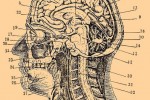All entries by this author
Dec 23rd, 2012 |
By Marc Applebaum

Introduction The descriptive phenomenological method of psychological research is rooted in the intentional property of consciousness. Husserl (1983) modified Brentano’s concept of intentionality, expressing it as consciousness acting upon an object or state-of-affairs that is not itself. In other words, embodied human subjectivity relates actively and passively to things that are immanent and external to it
[continue reading…]
Posted in Praxis |
4 comments
Tags: Broomé, Giorgi, Husserl, research
Dec 16th, 2012 |
By Marc Applebaum

Since Husserl, phenomenological philosophers have dialogued with the empirical sciences in an attempt to contribute to a more complete human science—a science that speaks to the fullness of being human. The job of our philosophers, in this context, is to invite an opening up of an epistemological conversation that renews the sciences’ exploration of human
[continue reading…]
Posted in Praxis |
1 Comment »
Tags: Applebaum, human science, Merleau-Ponty, reduction
Oct 29th, 2012 |
By Marc Applebaum

Merleau-Ponty (1968) wrote that questioning does not “fill in the blanks” in our knowledge. Instead, “the questions are within our life, within our history. They are born there, they die there, if they have found a response, more often than not they are transformed there” (p. 105). For phenomenologists, questions of any depth are never
[continue reading…]
Posted in Praxis |
Comments Off on The Internet: Closing or Opening Horizons?
Tags: Applebaum, cultural psychology, postmodernism, technology
Oct 20th, 2012 |
By Marc Applebaum

Here’s an example of a phenomenological dissertation method chapter. This paper is the methodology section of Broomé’s doctoral dissertation that outlines the Descriptive Phenomenological Psychological Method of research as taught by Amedeo P. Giorgi. Giorgi (2009) based his method on Husserl’s descriptive phenomenological philosophy as an alternative epistemology for human science research. This method section
[continue reading…]
Posted in Human Science |
10 comments
Tags: Broomé, Giorgi, human science, research
Oct 15th, 2012 |
By Marc Applebaum

Earlier this year I was invited to Volvo’s headquarters in Sweden to pilot my phenomenologically-based empathy training–afterwards, organizational consultants began to take an interest in what I was doing. Ahrenfelt, a well-known corporate consulting firm, invited me to give a talk at their yearly meeting in Stockholm. In preparing for such a talk outside of
[continue reading…]
Posted in Feature |
Comments Off on Englander: Empathy Training and the Primacy of the Other
Tags: empathy, Englander, Giorgi, intersubjectivity, Organizational phenomenology, research
Oct 13th, 2012 |
By Marc Applebaum

Philosopher Ludwig Landgrebe (1902-1991) was one of Husserl’s closest assistants. Landgrebe’s description of Husserl below was translated by Algis Mickunas, Professor Emeritus, Ohio University, and included by Lester Embree in his Representation of Edmund Husserl: “Almost everyone who first encountered Husserl experienced something of a disappointment at not immediately seeing any external signs of how
[continue reading…]
Posted in Merleau-Ponty |
Comments Off on What was it like to study with Husserl?
Tags: Husserl
Oct 12th, 2012 |
By Marc Applebaum

This conversation between philosopher Susi Ferrarello and me began, as is often the case in phenomenology, with an everyday experience: dreaming. My description of a dream led us to reflect on Merleau-Ponty’s discussions of dreaming and waking perception, and Husserl’s active and passive intentionality. The exchange continued over several weeks, and we’ve summarized it here–
[continue reading…]
Posted in Merleau-Ponty |
Comments Off on The Phenomenology of Dreaming: A Dialogue
Tags: Applebaum, embodiment, Ferrarello, Husserl, Merleau-Ponty
Sep 19th, 2012 |
By Marc Applebaum

Introduction Intersubjectivity can be described as a relationship between me and an other. The peculiarity of this relationship lies in the fact that the other is not alien to me, but is “within me” in a way that his or her “otherness” can be investigated beginning with the way in which that “otherness” is imminent
[continue reading…]
Posted in Merleau-Ponty |
Comments Off on Ferrarello: Husserl, Intersubjectivity, and Lifeworld
Tags: Ferrarello, Husserl, intersubjectivity, reduction
Sep 12th, 2012 |
By Marc Applebaum

The students who put this question to me are usually taking their first course in phenomenological or hermeneutic (narrative) psychological research. And in a way, I feel for them, because many of them didn’t expect to be facing something called “epistemology,” and bumping into any number of arcane Greek terms that seem to bear no
[continue reading…]
Posted in Human Science |
4 comments
Tags: Applebaum, human science, research
Sep 9th, 2012 |
By Marc Applebaum

Shogo Tanaka’s site Embodied Knowledge, with which I’ve just become acquainted, approaches the philosophy and psychology of embodiment through the lens of Husserl and Merleau-Ponty’s phenomenology. Tanaka teaches at Tokai University in Japan, and he is particularly interested in the dialogue between phenomenological philosophy and empirical sciences such as “neuroscience, cognitive science, artificial intelligence, robotics, etc.”
[continue reading…]
Posted in Feature |
1 Comment »
Tags: embodiment, Merleau-Ponty

 Follow
Follow email
email







